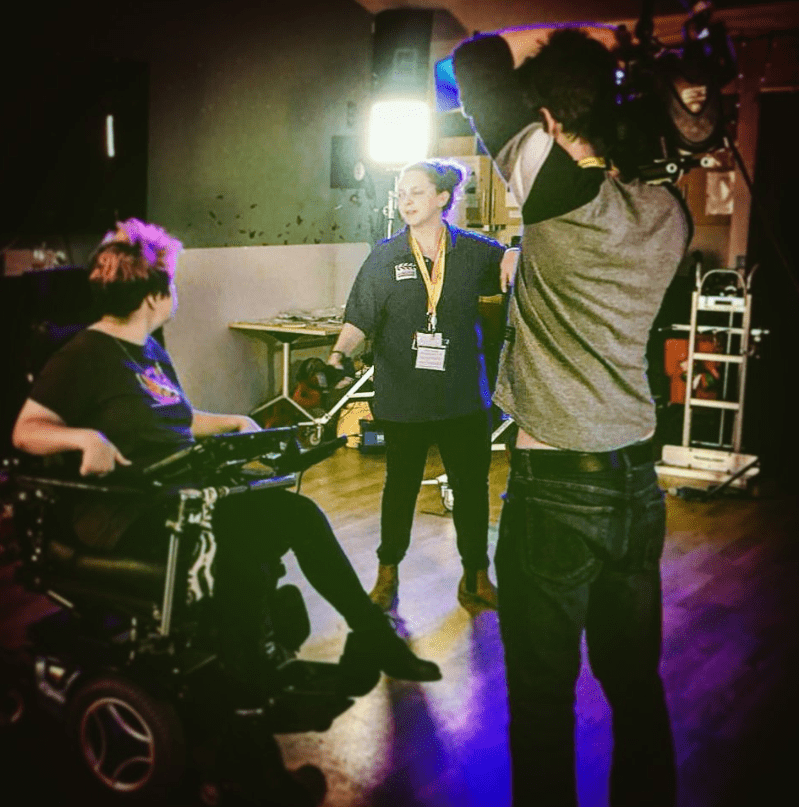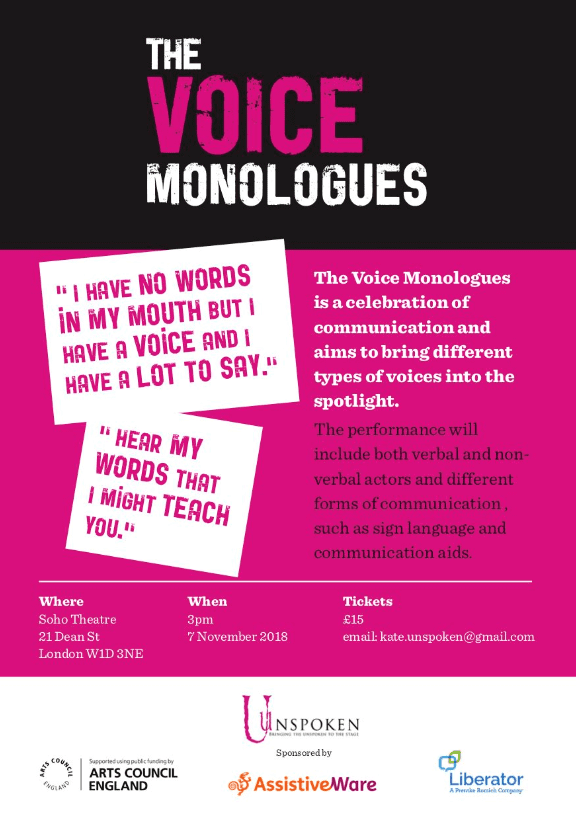Unspoken
Supporting staff and students to achieve their full potential since 1968.
Welcome to our weekly CENMAC blog post
The Unspoken Project CIC | by Kate Caryer, Director of The Unspoken Project CIC
Hello, my name is Kate Caryer. I have Athetoid Cerebral Palsy, meaning I am a wheelchair user and an AAC user. I use LLL a minspeak programme on an accent. I use this with my single finger or thumb as I cannot use a keyboard with both hands. Today I am talking about my company, ‘The Unspoken Project CIC,’ and how we want to tackle common misconceptions about AAC users.

Art is not a mirror held up to reality but a hammer with which to shape it. – Bertolt Brecht
The thing is, I am relatively quick at using my communication aid but am nowhere near oral, or so called normal, speech. The issue of the communication aid’s speed is a really important component for AAC users, but it isn’t much talked about. Actually, if you see a communication aid user on TV, they more often than not have everything they would like to say already programmed into their device. I feel this gives a slightly false picture and an unrealistic expectation for communication through AAC. A good example of this is when I did continuity as a part of a project for people with speech impairments for Channel 4 in 2013. Even though it was an incredible experience and an excellent opportunity for AAC representation, all that I said was pre-programmed.
Unspoken intends to show a real picture of AAC through telling our own stories and uplifting our own voices. I feel passionately about the representation of AAC users on stage and screen. We started Unspoken for two reasons; firstly, to get the voice of AAC users out there and secondly, to give opportunities to AAC users to get involved in performing arts.
The Voice Monologues was a project in 2018. It was a celebration of communication including six pieces written by augmentative and alternative communication users reflecting their lives; six talented actors who brought their words to life; three communication aid users and two sign language users who performed some of the most famous words ever written like you’ve never seen them before. It was received very well and an audience member in our feedback said, ‘A powerful message that we shouldn’t make assumptions about people with a communication disability. A better understanding of the difficulties that having a communication disability bring. It opened my eyes when I thought they were already open.’
The Voice Monologues had the biggest cast we have worked with, with 11 actors, five of whom were disabled and their assistants. I was surprised when reaching out to cast The Voice Monologues through social media, there were very few AAC-using actors. And the five disabled actors that were involved were difficult to find, compared to non-disabled actors. Seventy actors applied and had to be shortlisted to ten to audition and five were chosen: two very different processes. I hope through the platform of Unspoken I can represent disability in the arts to encourage other AAC users and disabled actors that art is for everyone to participate in, love and enjoy telling stories.
Because of the above, one of the next big projects for Unspoken is widening the pool of people we work with, this is especially important to find some more disabled, particularly AAC users. We want many more people to become involved in our company from all walks or wheels of life. If this is something you are interested in email: hq.unspoken@gmail.com
Art is not a mirror held up to reality but a hammer with which to shape it. – Bertolt Brecht
This is Unspoken to a T. Disabled people have as much of a right to share our reality.

Kate Caryer
Director / The Unspoken Project CIC / unspokenproject.co.uk / @UnspokenAAC
Don’t forget you can share your CENMAC experiences for our CENMAC family to enjoy. Plus, sign up for our newsletter to read more about assistive technology.



